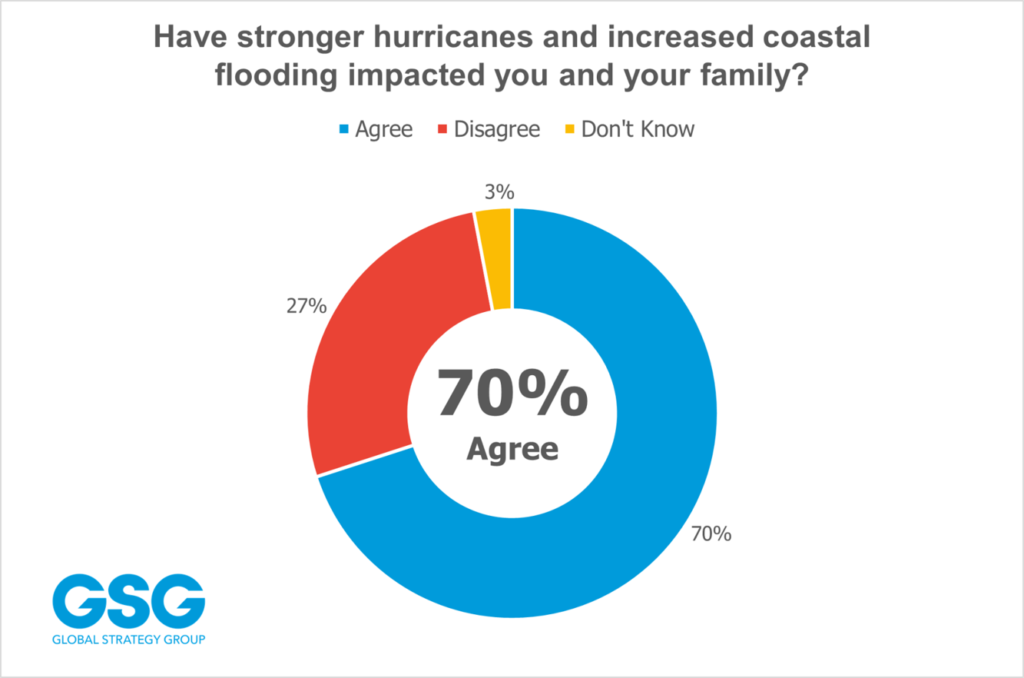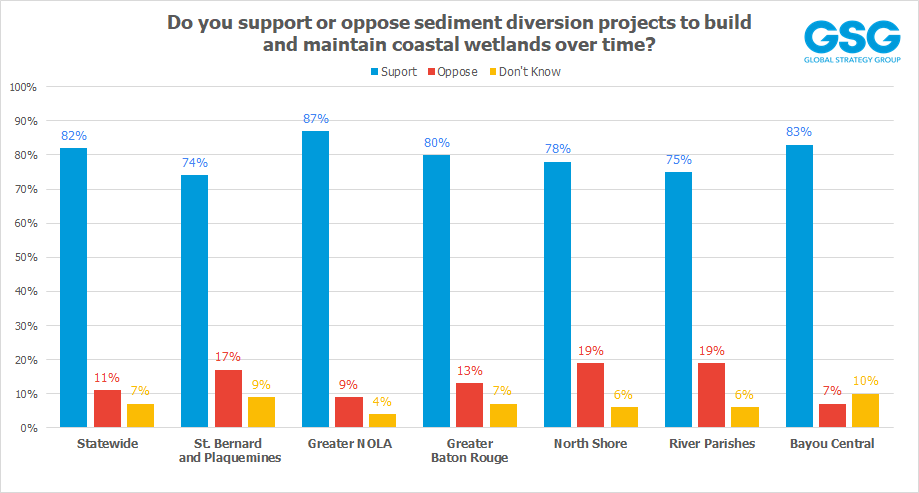
Voters say it is real. Some politicians say it is not. They fight climate change measures. How can this issue be political?
Two thirds of southeast Louisiana voters say they feel the effects of climate change, and even more agree that its stronger hurricanes, more intense rains and increased coastal flooding carry serious consequences for the state, according to a new poll for the Environmental Defense Fund. Such a strong response could bode well for Gov. John Bel Edwards’ ambition for Louisiana to reach net zero carbon emissions by 2050, said Steve Cochran, the nonprofit’s associate vide president for coastal resilience. “The ability to have a conversation about reducing greenhouse gas emissions is fundamentally based on understanding, a deeper understanding of the impacts that we face,” said Cochran, who also serves on the equity advisory group for the governor’s Climate Initiatives Task Force. Released by Democratic polling firm Global Strategy Group and the Environmental Defense Fund, the telephone survey gauged how 1,058 registered voters across 17 parishes felt about environmental issues ranging from extreme weather and land loss to Louisiana’s coastal restoration efforts. It was conducted July 14 through July 20 and carries a margin of error ranging from 3.5% to 8.0%, depending on the geographic area surveyed. The results were released three days after the United Nations’ Intergovernmental Panel on Climate Change forecast a dire future for Louisiana unless the state and world begin cutting their greenhouse gas emissions immediately.
nola.com

Global Strategy Group, Environmental Defense Fund
Bipartisan support is not a new result in the EDF reports.
Since the Environmental Defense Fund’s first Louisiana-centered poll in 2015, each subsequent survey has found broad bipartisan support for coastal restoration efforts as the Gulf of Mexico swallows more of the state’s lower third each year. The national environmental group is one of five in the Restore the Mississippi River Delta Coalition, a New Orleans-based organization aimed at bolstering public awareness of the land loss and supporting the use of river diversions to rebuild land. In 2019, the coalition’s statewide poll of chronic voters found just 50% of respondents said climate change had a direct effect on their lives. The 2021 southeast Louisiana survey shows more. “It matters a great deal that people are really beginning to understand the relationship in a general way between climate change and impacts that we’re facing because it provides the basis for action that maybe we haven’t had before you,” Cochran said. The 2021 poll found that more than two thirds of respondents supported sediment diversions proposed in the state’s 50-year, $50 billion Coastal Master Plan. Two major diversions would send freshwater and sediment from the Mississippi River into Barataria Bay and Breton Sound to restore wetlands.

Global Strategy Group. Global Strategy Group, Environmental Defense Fund
Currently is t is the Mid-Barataria Diversion that is the question. The political leaders oppose it but the public has other ideas.
The $2 billion Mid-Barataria Sediment Diverson project, in particular, has sparked controversy because of its predicted harm to oyster and shrimping grounds and to bottlenose dolphins. The Plaquemines and St. Bernard Parish councils oppose it, as does Lt. Gov. Billy Nungesser, a former Plaquemines president who is considered a potential candidate for governor in 2023. Yet most poll respondents from those parishes said they supported the diversions, and 46% said they would look more favorably on elected officials who also support the diversions. Overall, 56% of respondents in the 17 polled parishes said they would view those officials more favorably. Given the results, Global Strategy Group’s pollster, Andrew Baumann, said he would advise political clients that they have more to gain by supporting diversions and a lot to lose by opposing them. “Aggressively opposing these projects clearly puts them at odds with an overwhelming majority of coastal Louisiana voters, and that’s true across partisan lines,” he said.
To me, the question is will the public vote for what they feel or is best for them or will they support the incumbent to avoid change. Too many times the public votes against their best interests.



